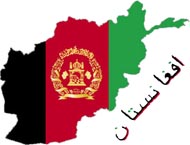Revitalized Taliban to dog Afghan election winner
 Kabul - Back in the autumn of 2003, US troops in Afghanistan were confident of their impending victory against the Taliban insurgents.
Kabul - Back in the autumn of 2003, US troops in Afghanistan were confident of their impending victory against the Taliban insurgents.
The Taliban had only three options, a US military spokesman in Afghanistan said: "Leave, die or change" - end their insurgency, be killed or support the Afghan government.
Hardly anyone would have put money on a fourth option - that the remnants of the Taliban would regroup into an effective guerrilla army.
As Afghanistan prepares for the August 20 presidential election, the Taliban are stronger than ever since their ouster in late 2001.
"Attempts to defeat the insurgency in Afghanistan primarily by military means have not been successful," said Thomas Ruttig of the Afghanistan Analysts Network, an independent policy research organization. "They have only driven more Afghans to take up arms."
Foreign troops, originally welcomed by most Afghans, have lost much of their popularity. In particular, civilian casualties caused by military operations anger the Afghan public.
Increasingly, the NATO-led troops are regarded as occupiers, which is exactly the impression the Taliban want to create.
The Taliban are strengthened further by disappointment in the government and its corrupt representatives, the return to power of Afghanistan's warlords, a still non-functioning judicial system and the slow progress in rebuilding the country.
Estimates of the insurgents' numbers vary. There might be as many as 10,000 to 20,000 fighters; however, not all participate in the insurgency full time.
The number of attacks usually rises after the poppy harvest in summer as fighters return from working their fields. Forced levies on planting opium poppies and drug trafficking add millions of dollars to the Taliban's war chest.
The term Taliban, which originally meant "students," is now a household name for the different insurgent groups in Afghanistan.
After to the "classic" Taliban under its chief Mullah Omar, the self-styled "leader of the faithful," there are other groups, with varying degrees of connections with the Taliban.
They are, however, united in their goal of driving out the infidels from Afghanistan and overthrowing the government of President Hamid Karzai, who is running for re-election next week against 40 other candidates.
The Taliban of Mullah Omar, whose council is believed to lead the movement from Pakistan, want to resurrect the Islamic Emirate of Afghanistan, which it created after its fast rise to power in the 1990s, ruling Afghanistan until the end of 2001.
It was, therefore, a little surprising that the Taliban reject negotiations. The conditions put forward by Karzai's government - to accept the constitution - are not acceptable to the militants. As a prerequisite for talks, the insurgents demand the withdrawal of all foreign troops, who are, however, the government's only guarantee of survival.
All increasingly desperate attempts by Karzai to engage the Taliban in talks have so far proved futile.
If elected, Karzai, as well as his main competitors, have announced new efforts to draw the insurgents, who are now acting out of a position of strength, to the negotiating table.
Like in the 2004 presidential poll, the Taliban has again called for a boycott of this year's election and said it would block roads starting the day before the voting.
It has also demanded on its website that Afghans, instead of casting ballots, join the jihad, or holy war, and take their rights from the foreign invaders.
"The planning of the elections is done by the Americans, funding is by Americans, providing the security is by the Americans - so based on which logic can we call this an Afghan-led process?" the militants argued.
Despite its threats, the Taliban did not succeed in 2004 in preventing the election from going ahead or causing a bloodbath, and ahead of the August 20 polls, the violence has so far not escalated above the usual high levels.
It was possible that the insurgents were saving their strength to focus on creating havoc on election day, Ruttig said.
Even the threat of violence could influence the outcome of the election, he said. The voting would go ahead despite the Taliban's boycott, but it remained to be seen how transparent it would be.
In the insurgency-ridden regions of Afghanistan, deploying foreign election monitors has been particularly difficult, and insecurity creates a smokescreen for possible manipulation, Ruttig argued. (dpa)